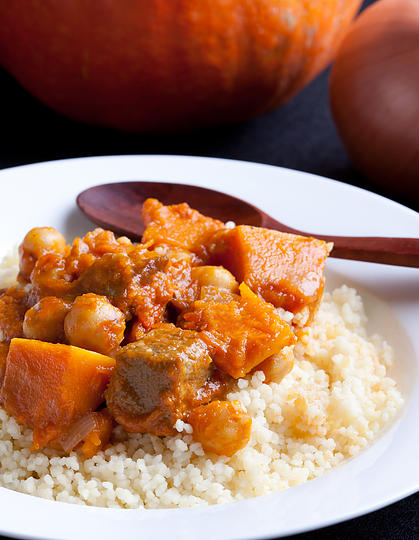
I am a kitchen purist. Having never worked in a restaurant and diced onions for hours on end, I revere chopping the same way that yuppies are charmed by poverty – so authentic and atmospheric! When my grandmother told me that her mother used to ferment her own soy sauce, I gasped and gurgled with excitement. Amazing! So artisanal! When I suggested that we try a batch, my grandmother looked at me as if I had grown another head. "Are you insane? Why don’t you focus on getting into a better law school."
So I have always turned my nose up at the use of anything electronic in the kitchen other than the blender to puree soup. After a day at work, sitting in front of the computer, I enjoy the rhythm of the knife against the chopping board and I’m proud of my daogong (dao as in knife, and gong as in totally freaking awesome skills). When I started encouraging my fiancé’s nascent cooking talents, I heavily project my own disdain for technological corner-cutting. I made him chop and grind and mince everything by hand, pleading our transient settlement in Beijing as a reason for not wanting to invest in anything we can’t stuff in a suitcase. He learned to pick up my own kitchen haughtiness.
"Oh, I roast and grind my own garam masala mix. How can you stand the supermarket stuff?"
My heart swelled with love and pride.
But however much he bragged in public, I would still come home and find him sweating, his palms irritated and red from hand-grinding spices in the mortar and pestle, looking at me with puppy-dog eyes: Why have you doomed me to this kind of sweatshop misery? I gave in and bought a coffee/spice grinder on Taobao for a mere 80 kuai. Whole spices that are freshly ground just before adding them to a dish are so much more flavorful than store-bought spices, which lose most of their flavor and pick up a musty smell in the cupboard. I routinely spend a few seconds inhaling the intense, brilliant aromas of freshly ground spices whenever I use them. There is no reason you shouldn’t either. Whole spices – nutmeg, cinnamon, cumin, cloves, bay leaves – are easily bought in Chinese supermarkets for much less than their pre-ground, imported counterparts. A spice grinder (which cannot double for your coffee grinder) is so cheap and effortless. You can clean the blade by grinding some stale bread, making spiced breadcrumbs.
Spiced lamb stew with pumpkin
and chickpeas
Serves 3-4
Spices
½ tsp cumin seeds
½ tsp coriander seeds
1 tbsp dried chillis
½ tsp cloves
1 bay leaf
Ingredients
3 tbsp olive oil
500g lamb shoulder, cut into large chunks
1 large onion, diced
4 cloves garlic, minced
Salt to taste
Pepper to taste
1 tbsp tomato paste
1 small pumpkin, cut into large chunks
1 can chickpeas (or 1 cup dried chickpeas, soaked)
1 16 oz can of tomatoes (or 3 ripe tomatoes)1 small piece of ginger, minced
1 tbsp apple cider vinegar
Fresh cilantro, green onion, toasted almonds and yogurt to serve if desired
Place spices in a small dry pan. Roast over medium fire until fragrant, being careful not to burn them. Cool the spices, then grind them to a fine powder in a spice grinder or with a mortar and pestle. In heavy pot, heat the olive oil, then brown the lamb chunks well. Add onion and garlic with salt and pepper and cook until translucent. Add spice mix and cook for 30 seconds. Add tomato paste and cook for 2 minutes. Add the rest of the ingredients (except the vinegar), along with any juices from the tomatoes. Bring to a boil then lower to simmer. After 45 minutes, add the vinegar and leave to simmer for another 15 minutes.
Ladle the stew into bowls and serve with couscous or crusty bread. Sprinkle with minced cilantro, green onion, and toasted almonds. Top with yogurt.



